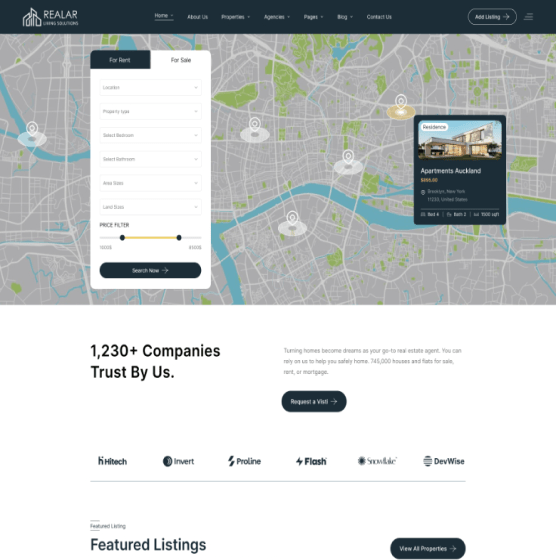The Truth About Your First Rental Investment Go Agentless!
Are you considering taking the leap into the world of rental investment? The journey can feel overwhelming, especially for first-time investors. However, there is a smarter way to approach this venture—by going agentless. In this comprehensive guide, we’ll explore essential first-time rental tips that will empower you to make informed decisions and maximize your investment. Let’s dive in!
Understanding Rental Investment
Before we delve into the nitty-gritty, it’s vital to comprehend what a rental investment entails. Essentially, it involves purchasing a property to rent it out to tenants, generating a steady income stream while potentially increasing in value over time. But whether you are a seasoned pro or a novice, the process doesn’t have to be daunting.
The Benefits of Going Agentless
One of the first questions you might ask is, “Why should I consider buying rental property agentless?” Here are some compelling benefits
- Cost Savings Agents typically charge a percentage of the purchase price, adding significant costs to your investment.
- Increased Control You have the power to make decisions at every stage, from property selection to negotiations.
- Direct Access to Information By managing the process yourself, you can conduct your research and gather insights tailored to your needs.
- Empowerment and Learning Navigating the real estate market on your own can greatly increase your knowledge and skills in property management.
Essential Tips for First-Time Rental Investors
Now that you understand the benefits, let’s explore some first-time rental tips that will set you up for success.
1. Research Your Market
Your first step in making a successful rental investment is conducting thorough market research. This involves
- Analyzing local real estate trends
- Reviewing rental rates
- Studying neighborhood demographics
Understanding your market will help you identify lucrative opportunities and avoid potential pitfalls. Utilize online resources, local newspapers, and community forums for invaluable information.
2. Assess Your Budget
Your budget is one of the most crucial aspects of your rental investment. Make sure you account for
- Property purchase price
- Closing costs
- Ongoing maintenance and management costs
- Emergency funds for unexpected expenses
It’s essential to create a detailed budget to avoid financial strain later. Remember, your goal is a profitable investment!
3. Find Your Ideal Property
The type of property you choose significantly impacts your success. Here are some popular options
- Single-family homes Easy to manage and appealing to families.
- Multi-family units Generate multiple rental incomes while diversifying your investment.
- Condos Often come with homeowners associations, reducing some management burdens.
Consider factors like location, amenities, and tenant demand while selecting your property. An informed choice will yield a higher return on investment.
4. Understand Financing Options
As a first-time investor, it’s vital to explore various financing options for your rental investment. These may include
- Conventional loans Standard mortgages offered by banks and lenders.
- FHA loans Government-backed loans that are perfect for first-time buyers.
- Private financing Approaching individual investors who may offer better terms.
Research and compare different financing options to find one that suits your financial situation best.
5. Legal Considerations
Understanding legal requirements is essential in any rental investment. Familiarize yourself with
- Local landlord-tenant laws
- Eviction procedures
- Property management regulations
Consider consulting with a real estate attorney to ensure you’re compliant and fully protected.
The Rental Process Explained
Now that you’re ready to go agentless and make your rental investment, it’s crucial to understand the complete rental process
1. Property Acquisition
Once you’ve chosen your property, make an offer. Ensure your offer is competitive but still within your budget. Don’t forget to negotiate repairs or concessions if necessary.
2. Preparing Your Property
After acquisition, prepare the property for tenants. This may include
- Addressing repairs
- Cleaning and staging
- Setting up online listings
A well-prepared property attracts quality tenants and increases rental value.
3. Tenant Screening
Finding the right tenant is crucial for long-term profitability. Here are steps to follow
- Require rental applications
- Perform background and credit checks
- Contact previous landlords for references
These steps will help you select responsible tenants and minimize risks.
4. Lease Agreement
After selecting a tenant, draft a lease agreement. Ensure it includes
- Duration of the lease
- Rent amount
- Rules and regulations regarding property use
Having a comprehensive lease protects your rights and sets clear expectations.
5. Property Management
As an agentless investor, managing your property is on you. This means handling
- Maintenance issues
- Rent collection
- Tenant communications
Consider using property management software to streamline tasks. It can save you time and effort!
Final Thoughts and Moving Forward
Making your first rental investment can be a rewarding journey, offering financial freedom and long-term wealth building. By opting to go agentless, you not only save money but gain invaluable knowledge and control over your investment. Follow these tips to ensure a successful start!
If you’re ready to take the plunge, visit Agentless Deals for expert guidance and resources tailored to first-time investors. Your path to becoming a successful landlord starts here!
‘ Ready to make your first rental investment? Visit [Agentless Deals](https//agentlessdeals.com) for expert guidance!










